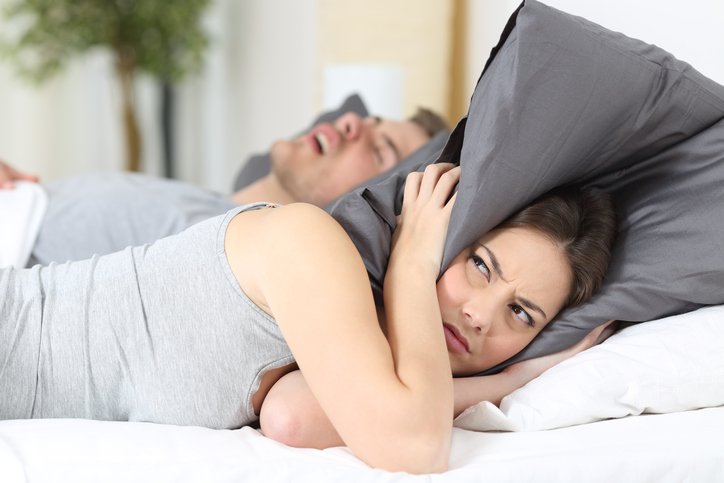Too Little Sleep Leads to Poor Eating Habits

At SleepRight McKinney, Dr. Lawrence strives to help provide every patient with the quality night’s sleep they deserve. If you struggle with sleep apnea, you know firsthand just how difficult getting the rest you need each night becomes. Whether you wake up dozens a times a night or just have trouble getting and staying asleep, apnea patients commonly experience feeling tired and drowsy the next day. Not only does sleep apnea make it difficult for you to stay focused on getting what’s needed done each day, it can also negatively impact everything from your health to your weight.
In fact, sleep apnea patients who don’t get enough sleep at night may actually have trouble maintaining a healthy, balanced diet, according to researchers. The results of a new study actually suggest that even experiencing just one night of lost sleep increases the desirability of junk foods.
Surprisingly, the reason we start to crave junk food isn’t related to an increase in ghrelin – the often referred to “hunger hormone” – which previous research has linked to sleep deprivation and poor dietary choices. Instead, research actually pins the problem of desiring junk food on a lack of sleep.
“We know from many previous studies that reduced sleep increases obesity risk and also that people tend to get less and less sleep,” writes the study’s lead researchers, Professor Jan Peters of Germany’s University of Cologne. “Our results now show a neural mechanism that might contribute to the association between reduce sleep and weight gain.”
A Lack of Sleep Leads to Poor Dietary Choices
Roughly 33 percent of Americans fail to get enough sleep on a nightly basis, according to the Centers for Disease Control and Prevention. Receiving less than the recommended seven hours of sleep at night has been previously linked to a range of health problems that include diabetes, obesity, stroke, heart disease and hypertension.
As part of their study, Peters and his research team examined 32 healthy, nonsmoking men of normal weight. Researchers collected blood samples and conducted MRIs after the participants had received a normal night’s rest at home and also after a night where they were kept awake in a lab.
The following morning, participants were asked to choose between buying snack foods and non-food items during a decision-making task. The study found the participants were far more willing to spend more money on junk food items only after a night of sleep deprivation. The men ranked their hunger levels as the same following both a night of sleep and a night of staying awake.
After losing a night’s sleep, scans of the participants’ brains showed an increased amount of activity in a circuit between the amygdala and hypothalamus, which is part of the brain involved in eating. This suggests to researchers that sleep loss increased the desirability of junk food when compared to non-food rewards.
Researchers were surprised that changing hormone levels weren’t shown to have any link to the food choices made by the study participants. However, the results of the study did further support the idea that too little sleep can cause the brain to make a variety of poor decisions that can have lasting consequences on our health.
Better Sleep Leads to Better Health
At SleepRight McKinney, Dr. Lawrence is always quick to caution patients against underestimating the importance of receiving a quality night’s sleep. If you or a loved one suffers from sleep apnea, it’s vital that the condition receive the proper treatment in order to reduce the long-term effects.
Don’t wait any longer to get the rest you deserve. Contact our office today to schedule your sleep apnea consultation with Dr. Lawrence. From eating better to waking up feeling refreshed, you’ll be glad you final took the night back from sleep apnea.

